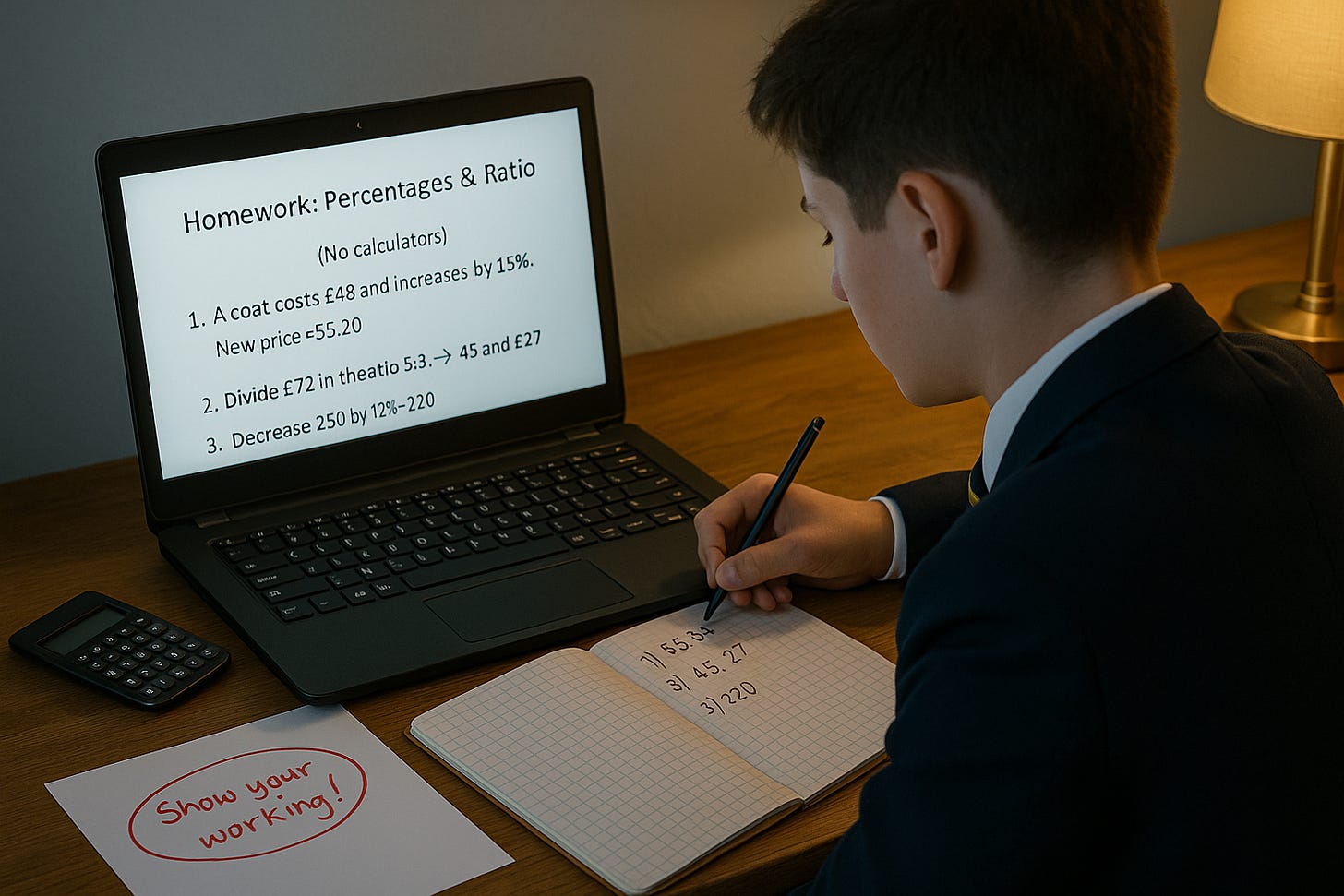PREMIUM: Homework Part 1
Enforcing homework and the problem of copying
A few months ago, we wrote about our experiences with unenforced rules:
One issue we didn't look at was homework. In this post, we will take a look at how homework is managed in schools.
What happens if pupils don’t do the homework?
Most schools have systems in place to deal with homework that is not handed in. There is more than one way to do this; for example, some schools use an escalating behaviour system. One of us worked in a school where there was one point for the first missed homework, then two, then a detention at break or lunchtime, and eventually an after-school detention. Other schools go straight to detention for the first missed homework. Depending on the school setting, escalation systems often become overloaded because it is usually the same pupils who ignore homework repeatedly. When the first sanction is a detention, class teachers can be reluctant to give it. For instance, some teachers give second chances, such as the option of submitting the work within 24 hours, before setting a detention.
In practice, the use of behaviour systems to enforce homework may make pupils comply, but it does not necessarily make them do the work in a way that leads to them learning. Cheating increases exponentially, when the main incentive to do homework is the fear of a sanction, and we will discuss this below.
Keep reading with a 7-day free trial
Subscribe to Andrew Old's Education Battleground to keep reading this post and get 7 days of free access to the full post archives.






